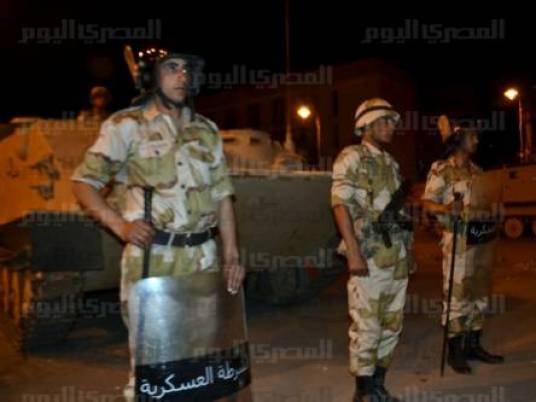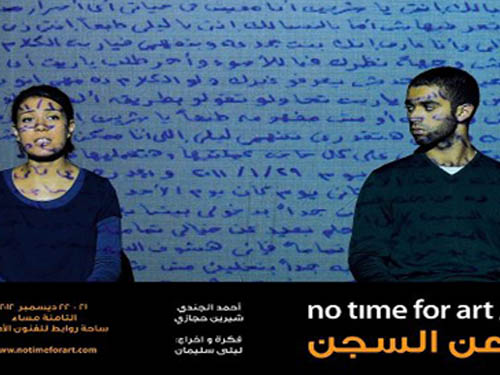Combining the sincerity of a personal testimony with the drama of scripted dialogue, theater director Laila Soliman’s latest play “No Time for Art” successfully sheds light on the taboo topic of human rights violations by Egypt’s ruling military.
“No Time for Art” is centered on the testimony of Egyptian actor Aly Sobhy, who was detained by military police on 9 March, tortured and released a few days later under public pressure.
Other actors in the play shift roles, taking on different characters in the story.
A video of the 9 March detainees previously aired on state TV is screened in the background with the TV presenter praising the military’s success in capturing “thugs who have been terrorizing the public.”
Sobhy sits on the stage during the screening, clean-shaven and nicely dressed, refuting the lies promoted on state TV.
Although the detained group spoke up on many occasions, asserting that they were peaceful protesters, the stark comparison between Sobhy’s image on TV, disheveled and beaten up, and his appearance on stage adds weight to his testimony.
“No Time for Art” goes on to uncover the unconstitutional sentencing of minors in military trials. In the detention camp, Sobhy says he met many children. One official denies that children are detained others try to justify arresting them.
The character of a human rights activist then appears and explains to the audience proper legal procedures for trying minors, often overlooked during Egypt's unrest.
The play flows smoothly between the different stories with actors shifting characters. The storytelling is very engaging and strengthens the delivery of its central message.
This low-budget production does not rely on sound effects or scenery. Yet, the crew is able to create a harmonious environment, playing on soft lighting, and actors occasionally create sound effects without interrupting the dialogue.
Despite telling his story many times, Sobhy was able to strike a balance between sincerity and theatricality.
The first part of “No Time for Art” is meant to be interactive. To pay tribute to the revolution’s martyrs, audience members were asked to pin a sheet of paper with the name, age and some information about a martyr. One by one, they would then get up, impersonate the martyr and demand the trial of the killers. While this technique might be too literal, it does reinforce the humanity of the martyrs, reminding us that they are people and not just numbers, and brings attention to the importance of a swift and fair trial for their killers.
“No Time for Art” is showing at 8 pm at Downtown’s Rawabet Theatre until 24 June.



